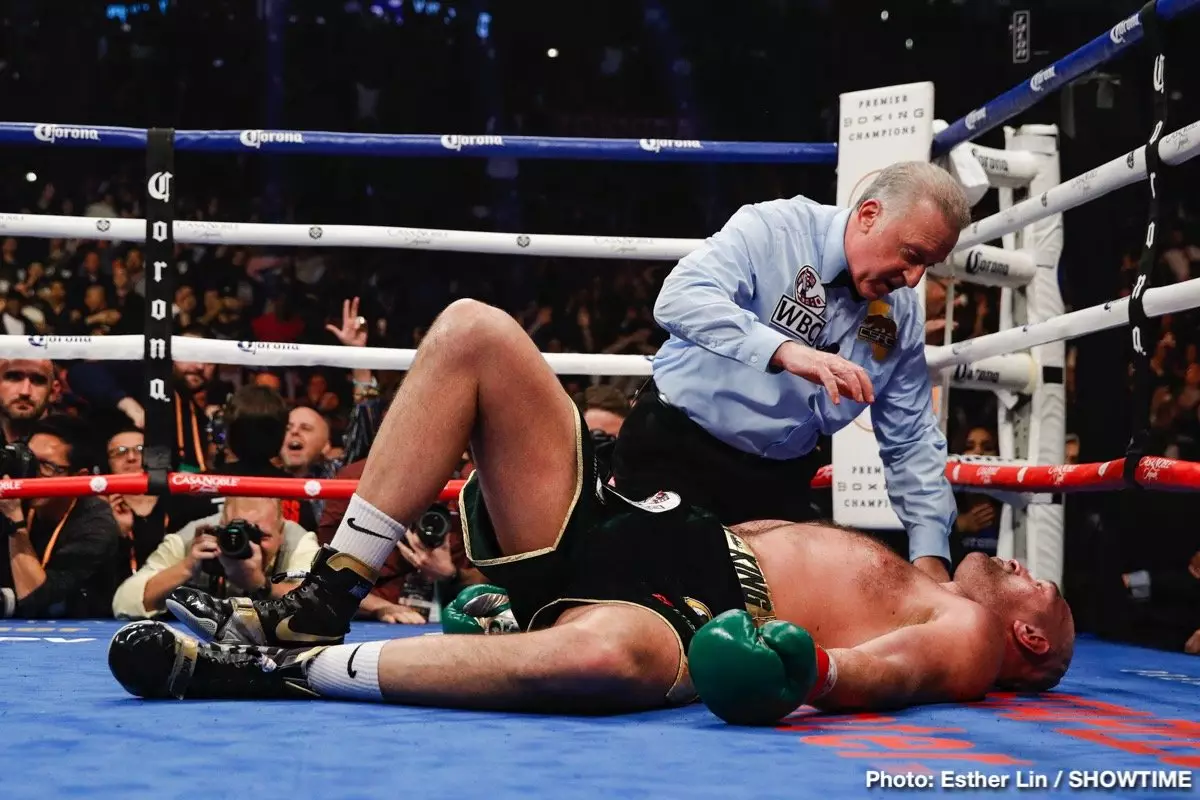As heavyweight boxing continues to capture global attention, the discourse surrounding judging and officiating becomes increasingly significant. Tyson Fury, the current heavyweight champion with a professional record of 34 wins, 1 loss, and 1 draw, is no stranger to debate, especially in the wake of his rematch against Oleksandr Usyk. Ahead of this anticipated showdown in Riyadh, Fury expressed his skepticism regarding the legitimacy of “robberies” in boxing. Instead, he posited that decisions often come down to subjective interpretations, underscoring how varied perspectives on the same fight can yield different outcomes.
Fury’s dismissal of the idea of robberies in boxing suggests a mindset focused more on the inherent subjectivity of the sport. While he references the opinions of three judges, most observers lean towards Usyk’s performance in their last bout on May 18th, which many consider a clear victory for the Ukrainian fighter. This dichotomy in perceived performance versus official scores opens up a larger conversation about the efficacy and reliability of judging in boxing.
The disparity in scoring between judges and the public often leads to fiery debates. In the case of Fury and Usyk, one judge scored the match narrowly in favor of Fury. However, this score contradicted the majority view, where boxing aficionados felt Usyk dominated, even inflicting significant damage during the contest. It exemplifies a troubling reality—how one individual judge’s opinion can drastically differ from that of the crowd, raising questions about judging standards and consistency.
Interestingly, Fury has had instances in his career where judgments have landed in his favor at critical junctures. The infamous fight against Big John McDermott in 2009 is a poignant example; many believed McDermott should have won. The referee’s decision to score the contest largely for Fury fueled claims of a ‘robbery,’ establishing a precedent that shadows Fury’s legacy. Instances like these prompt discussions on whether officiating can unduly favor certain fighters or create perceived injustices in the ring.
The Role of Referees: An Underdiscussed Factor
While Fury focused his attention on judging, he noticeably skirted addressing the pivotal role of referees. The nuances of officiating can often sway outcomes, as evidenced in his encounters with Deontay Wilder. In their first fight, Fury was on the brink of a knockout, yet the referee’s decision to issue a count rather than halt the contest raised eyebrows. Critics argue that this moment, among others throughout Fury’s career, leads to questions about the integrity and ability of referees to make prompt and fair decisions.
Moreover, similar concerns arose during Fury’s third bout with Wilder, where many spectators voiced their belief of a slow count after Fury was knocked down. These moments of contention create an underlying narrative—one where the support of referees could, arguably, rescue a fighter from what might otherwise be a loss. Thus, while Fury’s claim that there are no robberies in boxing reflects his personal outlook, it also serves to overshadow critical discussions about how referees influence sport outcomes.
In closing, the opinions surrounding boxing judgments complicate the sport in a multi-faceted way. Fury, while somewhat dismissive of the robbery narrative, embodies the complex interplay between personal perception, public opinion, and the reality presented by judges and referees. Despite the Gypsy King’s significant achievements in the ring, the debate around subjective scoring remains a persistent issue that requires thorough examination.
For the boxing community, it’s crucial to consider not merely the results depicted on scorecards, but also the influences that actors—be they judges, referees, or promoters—bring to the table. An evolution in how fights are scored and officiated could ultimately lead to a more just system where skill and effort are accurately rewarded, moving beyond subjective opinions and toward a clearer, more standardized framework.


Leave a Reply